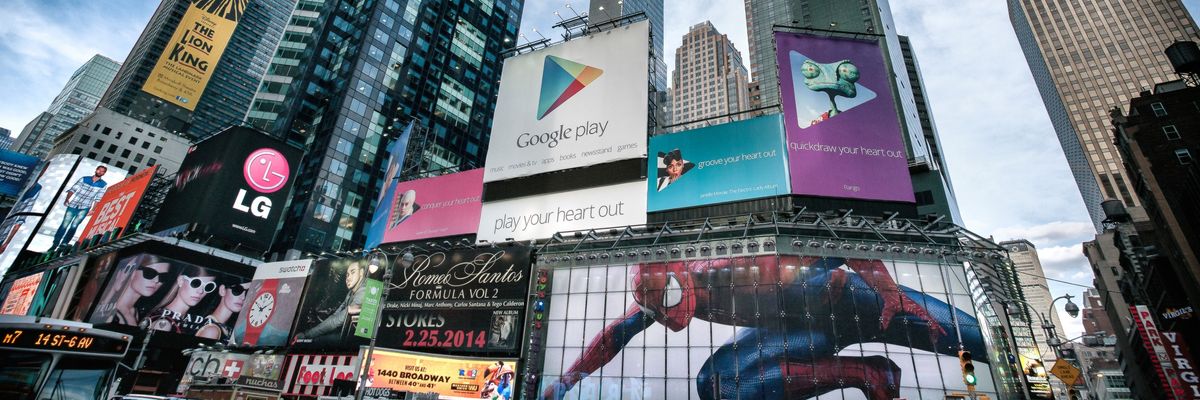State attorneys general seem on the verge of settling a major antitrust case with Google over how it controls apps on devices that use its Android operating system. But they should think twice—and make sure they are securing structural and behavioral remedies that truly undercut Google’s anti-competitive practices in this space.
A different antitrust case that's underway against Google already offers us lessons. Three years after the Department of Justice and state attorneys general filed a historic suit against Google for illegally monopolizing the internet search market, the trial has now begun—and in just the first week damning details of Google’s offenses have already been made public. As the trial proceeds, we will undoubtedly learn considerably more about Google’s anticompetitive and anti-consumer behavior. The prosecution has a strong chance of winning the case, which could result in a restructuring of the company.
Google’s monopolistic behavior, however, is not limited to Google Search, which brings us back to the app store lawsuit. In July 2021, a bipartisan coalition of 36 states (and Washington, D.C.) filed suit against Google for maintaining an illegal app store monopoly that exploits developers, harms consumers, and crushes competitors. This was welcomed by competition advocates and app developers alike. The suit identified the use of unlawful tactics, such as Google’s abuse of restrictive contract agreements to entrench its monopoly—and identified harms to consumers and developers, such as Google’s “extravagant commission” on in-app sales. With so few tech giants controlling smartphones and their operating systems, these exploitative harms are unreasonably hard to avoid—except for the rare few living off the modern grid.
If the proposed settlement is finalized, Google executives won’t be compelled to testify in public, representing a missed opportunity to also subject these executives to a crucial form of public accountability regardless of the final ruling.
Regulators in other jurisdictions from South Korea to Europe have recognized Google’s undue power in the app store market. In fact, earlier this month the European Union designated the “Google Play” app store a “gatekeeper” under the Digital Markets Act, deserving of further scrutiny and subject to stringent requirements that it not engage in certain anticompetitive practices.
Yet in a move that would relieve pressure on Google at this critical juncture—as it faces the ongoing Search trial in the U.S., gatekeeper designation in Europe, and another forthcoming antitrust trial about its ad tech monopoly—state attorneys general announced a tentative settlement to the Google Play case, just days before the start of the Search trial—the details of which are completely unknown to the public. We know only that Google was willing to accept this particular deal, which, at the minimum, should give us pause.
We hope that the terms of the “proposed order and tentative settlement” benefit the public and compel an end to Google’s anticompetitive app store practices—but the fact that this public verification is being thwarted by secrecy around the proposed settlement is disturbing. Even more importantly, agreeing to settle the case rather than proceed to a trial—which would commence in November—is potentially a missed opportunity to compel Google to stop its anticompetitive practices through court order.
Furthermore, holding the trial itself can be the remedy. But if the proposed settlement is finalized, Google executives won’t be compelled to testify in public, representing a missed opportunity to also subject these executives to a crucial form of public accountability regardless of the final ruling. Moreover, it would be reasonable to fear that this proposed settlement may not meaningfully address Google’s monopolistic behavior and the harms caused by them, especially given the company's past attempts to skirt the rules
It’s early, but observers increasingly believe that prosecutors can win the Search trial that is underway in the nation's capital. The Google Play case is potent as well—and prosecutors should make sure they are not folding prematurely. The attorneys general should rethink their decision to settle and consider going forward with a trial.

